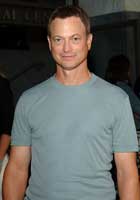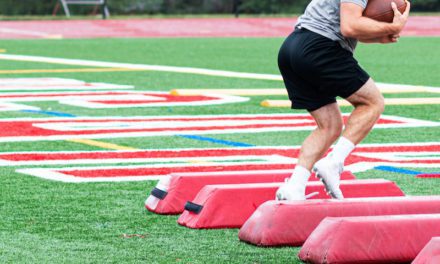 What’s Stopping You?
What’s Stopping You?
I have worked for a long time on issues in my life that I would like to improve–weight, self-esteem, sticking to an exercise plan. Each new book in these areas seems to promise a new and better approach and I have bought them all. I have even read most of them. Well, most of some of them. The problem is I do not actually put them into practice or follow through on the plans for more than a few days. Am I the only one who can’t or doesn’t make better use of these ideas? What is wrong with me?
Tami Bishop,
Battery Point
Bernie: Why do people seek out self-help books, much less invest their trust in them? They’re band aids for gaping wounds, too superficial to be effective. Perhaps, Tami, it’s not what’s wrong with you, it’s what’s wrong with the self-help industry.
Dr. Martha: I think we’ve all experienced Tami’s dilemma in one way or another in our lives.
Dr. Maggie: I agree, and for that reason I think this question is less about disparaging pop-psychology or self-help books and more about what happens when we can’t get where we think we want to or need to get. Bernie, there are quite a few sophisticated, deep and true self-improvement books out there—some are contemporary, some are ancient, but I see no difference in Tami seeking out “The Secret” when she’s feeling out of balance, and my looking to Lao Tzu or you to Isaac Bashevis Singer. Each of us is looking for help, and each of us may be moved or touched by a different thing. And name me one person who hasn’t disappointed themselves in their striving for improvement at one point in their lives.
Bernie: Okay, So what stops us from getting to where we need to get?
Dr. Martha: Obviously, if you aren’t moving forward, you have some kind of hidden conflict or blockage. But—and here I‘ll expose my own struggles – some of us have been doing this for decades. I’ve struggled with my weight and fitness and like Tami, have bought and read “some of “each new book and each new “remedy.” I do believe that you hear what you need to hear when you can hear it, and I keep trying to listen. But it seems the messages never take hold. I “know” how to eat right, exercise right, etc. What keeps me from doing it?
Bernie: So I wonder if the question is: Why do we seek answers we don’t seem ready to hear?
Dr. Martha: What blocks our desire to learn those answers?
Dr. Maggie: Hm. Although I find those to be poetic questions, I’m not sure I would look at it like that. There is a sense of frustration, even of failure, in both Tami and Dr. Martha’s questions. To me, seeking — seeking to learn — is human nature. We naturally want to learn. If we don’t, there’s a blockage. So back to the question of what happens when we think we’re ready, and think we want to learn, and yet seem repeatedly to “fail”? Nobody buys these books who doesn’t at least want to learn, so that isn’t where the blockage is. Sometimes, the “answers”—whatever books we turn to in order to help ourselves— show us where we want to be, the mountain we want to summit. And that is great. When we “fail,” perhaps it’s just that we’ve been shown the distance between the base and the peak. That to me is valuable.
Dr: Martha: So then the question is, if wanting to learn, getting the books, ordering the meal plans, signing up for the seminars aren’t the first step, how do we find out what is?
Dr. Maggie: To me, once one has seen the mountain peak and knows where the base is, then one can ask that. But that is a personal question: “What is MY first step.” Nobody is standing exactly where I’m standing to begin. What is the distance between where I am and where I want to be, and what is a step I can successfully take over and over until the place I reach begins to feel as natural and easy as where I started from? Mine will be different from yours. Let’s look at simply getting off the couch, walking, exercising. One person’s first step may be to walk to the mailbox everyday. And once they can do that, to venture to the end of the street. And once they can do that with ease, around the block, etc. Another’s to run five miles. Another’s to sit quietly and meditate—one person for one minute and another for an hour.
It’s lovely to encounter, to seek out a book/program that can show you your mountain peak, because then you know where you’re headed, but it is very rare to find a book that tells you what YOUR first step up that mountain is (though it can happen, that would be divine synchronicity.) And if you stumble, that stumble is also likely something personal—psychological, physical, emotional, philosophical– to you, not to whoever wrote the book.
So the best we can offer right now is: Take stock of where you are. Take stock of the fact that the mountain peak is beautiful, but the distance from the base to the top may be deceptive. It might be helpful to remember that self-improvement books, seminars, and processes are never about one thing. It is not just your weight or your fitness or your self-esteem. This is a whole mountain you’re aiming to climb, a tall one, and it is about improving your whole self.
Getting to the top requires that each new elevation become as natural and grounding as the base from which you started. Your “rest point” and “comfort zone” need to change in progressive stages for you to be able to get all the way up. Watch your step. Watch where you stumble. When you stumble, step back, and see if you tried to go to far too fast, or if there is a better first step or next step for you. If you are aiming to move forward in one area, and can’t seem to make headway, perhaps there is a mirage luring you to focus on one foothold, when in fact, there is another that comes before it.
If you have difficulty controlling your eating, exercising or, for example, asserting yourself, that could, indeed, be about food and self-discipline or self-esteem. It could also be about feeling out of control in other areas of your life. Weight loss and physical fitness may still be the peak of the mountain, but your first step may have nothing at all to do with either. Or it may have to do with simply finding something else you also enjoy and that makes you feel confident (dog walking, gardening or cooking?) that becomes habit. Once that becomes integrated into your life, once those experiences of confidence and joy are your new baseline, then it may be time to look at how you eat and at an exercise plan. It may take a guide, a person who connects with you specifically, to figure that out: a therapist, a teacher, a mentor, a wise friend.
Keep your eyes on the mountain peak, and ask yourself if it is helpful to you to perceive your attempts as a “pattern of failure.” If so, why? What are you getting out of that? If not, then maybe it is more effective to see each attempt, each book half-read, each plan half-started, as the way in which you are testing which foot to move forward with first and how far. Keep testing the rocks. Keep looking at where you’re starting and where you’re aiming for. Look all around in fact. Find that first step, the one you can keep taking over and over. When you’ve forgotten that that was the “first step,” it’s time to take another. And when that next one begins to feel easy, like a first step, then take another. If you are walking in the present and on the right path, it may turn out feeling like the summit comes to you. And then, of course, there will be another, even more rewarding, mountain to learn to climb: Another summit to seduce your way.







